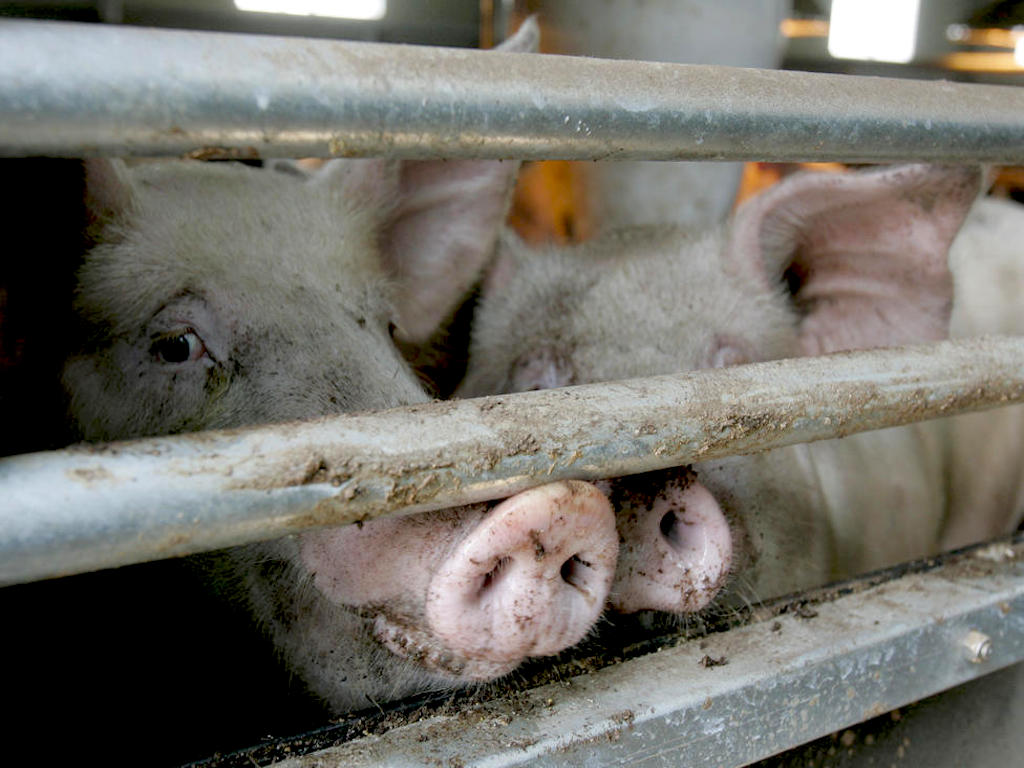4 Mins Read
New data shows that the coronavirus pandemic is sparking the biggest fall in meat consumption in decades all around the world. The trend, which analysts predict will last for at least the next few years, represents good news for the environment, which has undergone severe degradation in large part due to the animal livestock industry.
According to new figures from the United Nations Food & Agriculture Organization (FAO) released last month, per capita consumption of meat is set to drop to the lowest levels in nine years. Falling 3% from last year alone, the decline represents the biggest jump since at least 2000.
Research from around the world is also showing that overall demand for meat is retreating significantly, a major change in events considering that demand for animal protein has seen steady growth every year until now.
The trend has been set off by a chain of events amid the coronavirus pandemic, which has slashed disposable incomes due to the economic fallout, increased consumers’ concerns about health and food safety and shifted global attention towards the vulnerabilities and unsustainable nature of the meat supply chain.
In the U.S., where the worst slaughterhouse outbreaks have been recorded, per capita meat consumption isn’t projected to return to pre-coronavirus levels until at least five years into the future, say researchers at the University of Missouri’s Food & Agricultural Policy Research Institute.
Boston Consulting Group analysts say that the downward trend of meat intake in the U.S. is in part due to the shuttered foodservice industry, which accounted for 50% of all meat consumed outside the home nationwide. With the economic downturn expected to wipe out as many as 2.2 million restaurants globally, it is likely that families everywhere will be consuming far less meat simply because they are cooking more of their own meals.
In China, where the recent outbreak in Beijing was reportedly linked to imported animal protein, consumers are losing confidence in the safety of meat and are instead beginning to opt for more plant-based options. Fears have been further stoked by news of a novel swine flu with pandemic potential and a deluge of livestock diseases, prompting food establishments in the country to quickly begin offering more dishes made using vegan alternatives.

Starbucks China, for instance, recently rolled out a new vegetarian menu in partnership with vegan food techs Beyond Meat, Oatly and Omnipork, while Hong Kong’s Green Monday landed a collaboration with German supermarket giant ALDI to launch plant-based ready meals.
Analysts from Beijing-based consulting firm Bric Agriculture Group are prepared to see pork consumption in the country drop 35% compared to normal levels – a major turning point for reductions in meat intake given that China is responsible for almost half of global pork demand.
In Europe, pork consumption is dropping to a seven-year-low this year, according to forecasts by the U.S. Department of Agriculture. It’s an acceleration of a long-term trend across the continent, where environmental and animal welfare concerns have reduced meat demand, especially amongst the younger generations. Earlier this year, the Netherlands had celebrated an entire Meat Free Week, with even unlikely mainstream fast food giants such as KFC participating in the campaign.
Last month, we reported that surveys around the world, from the U.S. to the U.K. and Hong Kong are all recording record levels of consumer interest and willingness to shift to plant-based meat alternatives, with many respondents saying their decision had been influenced significantly by the coronavirus crisis. In South Korea, there has been a tripling of the country’s vegan population and fast-rising numbers of flexitarians.

For years, climate, environmental activists and scientists have been calling for a transformation away from an animal-centric food system. Data from the UN shows that animal agriculture accounts for as much as 18% of human-caused global greenhouse gas emissions, a figure higher than all types of global transport combined.
Aside from generating gases contributing to global heating, the industry is also land and water intensive, in the process driving destructive practices such as deliberate deforestation and water contamination.
Scientists add that moving away from animal agriculture will give the world more buffer against future public health disasters. A recent paper by leading academic physicians argues that in addition to eradicating the wildlife industry, intensive factory farming and the global appetite for animal meat should be discontinued in order to prevent future pandemics.
“Over the last 40 years, as the factory farm model has become a global phenomenon…Now, serious outbreaks are occurring regularly – more in the past 15 years than in the entire 20th century,” wrote the authors.
Lead image courtesy of Medical News Today.




